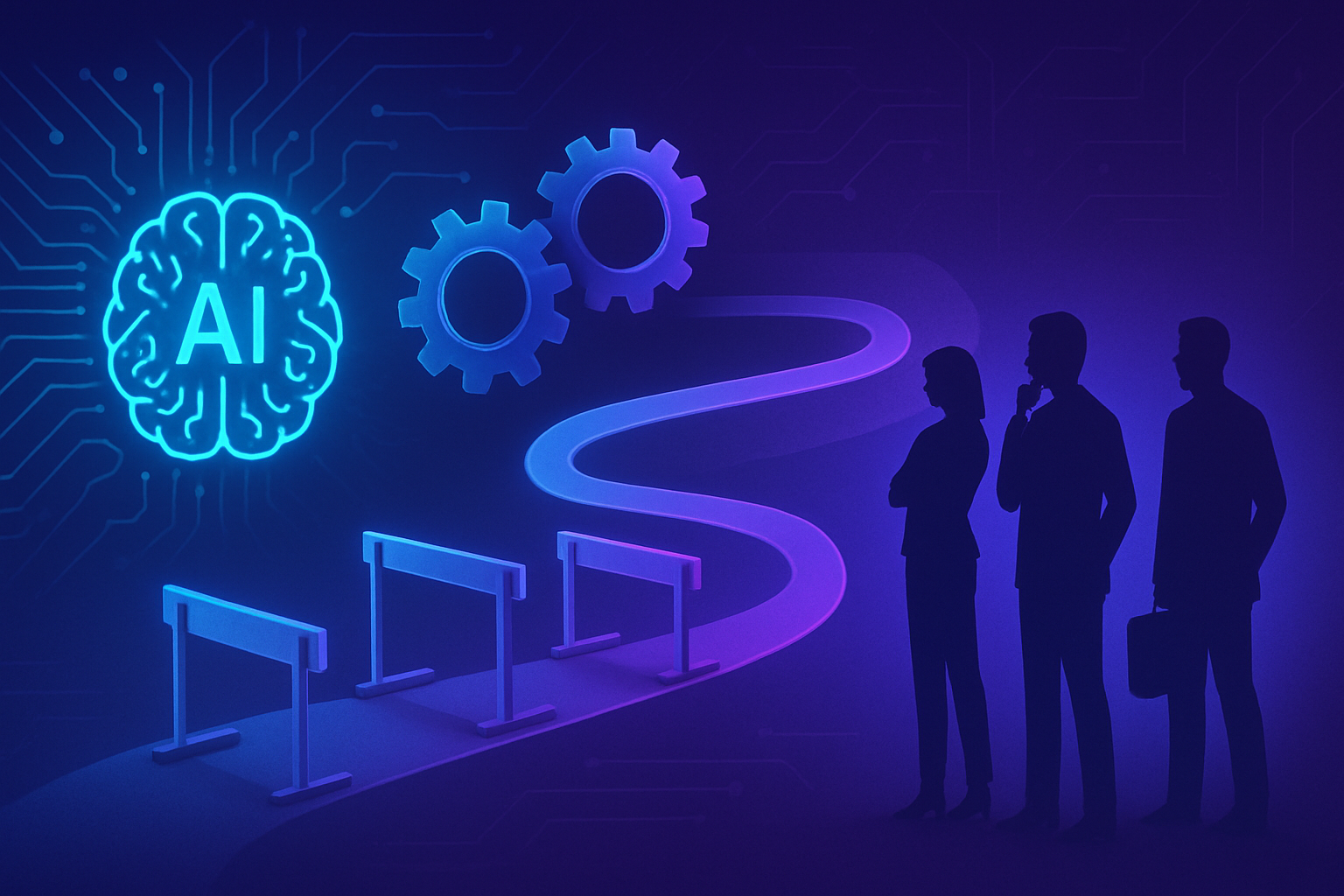Modern logistics has established itself as a strategic field where _artificial intelligence_ (AI) and _telematics_ combine to optimize operations. The integration of _advanced technologies_ disrupts traditional paradigms. In response to growing challenges of performance and efficiency, industry players must adapt their practices to meet market demands. AI not only energizes processes but also transforms how data is collected, analyzed, and interpreted during logistics operations. This marriage of intelligence and telematics becomes a powerful lever for safety, customer satisfaction, and environmental sustainability. Companies that commit to this path can expect substantial gains in competitiveness and operational efficiency.
AI and Telematics in Modern Logistics
Artificial intelligence continues to influence the logistics landscape, particularly through onboard telematics. This technology allows for real-time tracking of vehicles and analysis of driver behavior. Companies use this data to improve their operations and optimize their resources.
Driver Safety and Intelligent Systems
Telematics significantly contributes to driver safety. The integration of camera systems equipped with AI detects distractions. These intelligent devices alert drivers to signs of fatigue or distraction. Thus, they maintain heightened vigilance on the roads, preventing potential accidents.
Customer Service Optimization
AI enhances customer satisfaction through vehicle tracking. Companies can provide instant updates on the location of goods. This transparency meets modern customer expectations in an industry where information is paramount. By reducing uncertainty, companies bolster trust in their service.
Predictive Maintenance: Anticipating for Better Management
Telematics transforms fleet management through predictive maintenance. Traditionally, maintenance programs relied on thresholds defined by mileage. However, AI analyzes real-time data to anticipate maintenance needs. This allows operators to make interventions at the right time, thereby reducing costs associated with unexpected repairs.
Cost Reduction and Energy Efficiency
Optimizing routes through AI and telematics leads to a reduction in operating costs. By minimizing empty trips and planning more efficiently, companies decrease their fuel consumption. This is a significant advantage in an economic context where every euro counts.
Environmental Responsibility and Carbon Emission Reduction
The logistics sector faces growing environmental challenges. AI enables companies to adopt sustainable logistics practices. By streamlining their operations, they can reduce their carbon footprint. This is a real opportunity to meet regulatory requirements and customer expectations regarding sustainable development.
Competitive Advantages and Business Strategy
Implementing AI in logistics is not just a trend but a strategic necessity. Faced with demanding consumers, companies must ensure fast and personalized services. AI becomes a fundamental lever for maintaining competitiveness in a rapidly changing environment.
Technological Partnerships and the Future of Telematics
Many sector players collaborate with technology companies to integrate AI solutions. Giants like Amazon invest in smart vehicles to optimize logistics. Such partnerships foster innovation and meet the growing needs for operational efficiency.
Companies such as Google DeepMind are developing technologies aimed at revolutionizing logistics intelligence. Advances in AI and robotics indicate a trend towards increased automation.
Logistics companies must adapt to innovations that redefine operational models. Regulatory and environmental challenges are increasing, and telecommunications must evolve to meet these challenges.
The confluence of AI and telematics offers exciting prospects for the future. The sector’s challenges demand agile and tailored responses, indicating ongoing transformation. A logistics environment driven by intelligence and technology seems inevitable, and the challenges of tomorrow are shaping up today.
Frequently Asked Questions
What are the main benefits of artificial intelligence in logistics?
The main benefits include route optimization, improved driver safety, predictive maintenance of vehicles, and a reduction in operating costs.
How does onboard telematics combine with artificial intelligence?
Onboard telematics uses sensors and real-time data to provide essential information that can be analyzed by artificial intelligence algorithms, allowing for informed decisions on optimizing logistics operations.
What types of data are analyzed by artificial intelligence to optimize transport fleets?
The analyzed data includes driver behavior, vehicle performance, traffic conditions, and weather data, which helps predict maintenance needs and improve safety.
How is driver safety improved by the use of AI?
Safety is enhanced through detection systems using AI to identify driver fatigue or distraction, enabling preventive alerts to avoid accidents.
How does AI influence customer satisfaction in the logistics sector?
AI allows for better communication by providing real-time information about delivery times and the location of goods, which reduces uncertainty and increases customer satisfaction.
What environmental impacts do AI and telematics have?
These technologies contribute to the reduction of carbon emissions by optimizing routes, minimizing empty trips, and promoting efficient driving of vehicles.
What is predictive maintenance and how does AI contribute to it in logistics?
Predictive maintenance allows for anticipating vehicle maintenance needs based on real-time data and historical analysis, thereby reducing costs associated with unexpected breakdowns.
What challenges do companies need to overcome to integrate AI and telematics in their logistics operations?
Challenges include resistance to change, the cost of implementing new technologies, and the need to train staff for effective use.
What is the role of artificial intelligence in the future of logistics operations?
AI is seen as a strategic lever for logistics, enabling not only the optimization of existing processes but also the creation of new business models in response to modern consumer demands.






